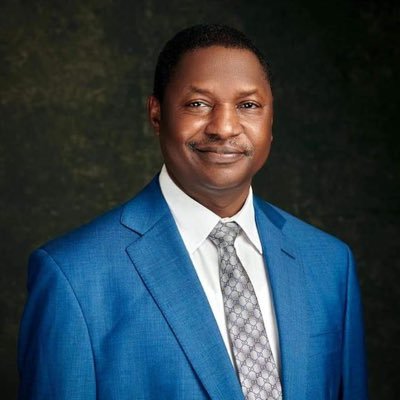The Debacle at the Bench
Again, the judiciary as represented by the bench dissembles in the matter of the Electoral Act 2022.
It is an intriguing judgement no doubt. In the base sense that the judgement could have been any commodity procured from that famous market on Lagos Island. Yet in another sense, this barefaced judicial brigandage is a metaphor for the state of the judiciary in Nigeria. It emphasizes everything that is wrong with Nigeria’s judiciary and indeed, the entire country. The background to this is that late in February, President Muhammadu Buhari had given assent to the amended Electoral Act, 2022, after many years of rejection and filibustering. The president’s hesitation had been overcome by the sustained campaign and pressure by civil society groups and majority of Nigerians who desire change in the electoral system. Upon signing the document, the president had objected to Section 84 (12) in the new
law, requesting the lawmakers to take another look at it with a view to rescinding it. This clause bars political appointees from voting or being voted for in party conventions and congresses for the election or nomination of candidates except they have resigned 30 days before the events. The president thinks it would deny many qualified individuals the opportunity to participate in the electoral process on the simple account that they were appointees. He thinks it is tantamount to denying people their freedom to participate in the political process and indeed a shrinking of the political space. The lawmakers reviewed the clause and stuck to their guns. Their reason, which seems to align with that of the generality of the populace is that appointees in executive positions are wont to deploy public resources and various appurtenances of office to vastly affect and manipulate the course of elections. For instance, an incumbent president or governor could easily use his position to influence a party primary to go his way by choosing to appoint thousands of aides who would later qualify as delegates in a party primary election. This explains why governors have such vice grip on the politics of most states as they could solely determine who gets what. This section is actually intended to bring some level of internal democracy and sanity to political parties.
But President Buhari and his team at the presidency led by the Attorney General and Minister of Justice, Mr. Abubakar Malami would not let go easy. In just one workday week after the lawmakers declined President Buhari’s request, obviously, someone in the corridors of power, had activated what seemed like a plan B through a court in Umuahia, Abia State. This explains why between March 9 and March 18, a Federal High Court in Umuahia had been approached by an unknown individual from an obscure party. The Justice Minister was joined as a defendant and in only a couple of days, judgement was given for the contentious section to be immediately expunged from the Electoral Act.
Malami had quickly put in motion, a process to delete the contentious section and to gazette it post haste. Who rushes to give effect to a judgement given at the primary court of adjudication? This is indeed outrageous. This newspaper posits that this is no way to make law in a civilized society. Especially a crucial legislation that concerns Nigeria’s electoral system. We see the brazen pursuit of self-interest from the office of the AGF as against public interest he had sworn to uphold.
On the part of the judiciary, there has been in recent times, too many judgments that have raised questions about the integrity of the judicial process. Many judgements are so brazenly skewed that even lay citizens could see that they repudiate common sense.
We urge the Nigerian Judiciary Council to act promptly, review such cases and come down with heavy sanctions on judges who openly pervert justice through such noxious judgements that assault the sensibilities of the people and taint the image of the judiciary.
Though some may argue that the legislature has acted in enlightened self interest, but we must commend the two chambers of the National Assembly (NASS) all the same for their tenacity in seeing that the electoral act was amended and passed into law. It has been an uphill task pushing the presidency to align itself to a piece of legislation that is poised to vastly improve Nigeria’s electoral system and give more meaning to her democracy but it is salutary that, in the end, common sense has prevailed. By this singular act, a new day beckons.

